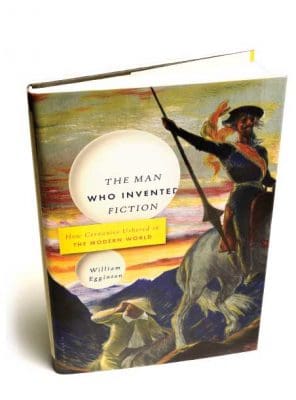The question posed by a well-intentioned undergraduate student during a course on anti-Semitism nagged at Professor Benjamin Ginsberg. “How come the Jews didn’t resist the Nazis?” the student asked Ginsberg, the David Bernstein Professor of Political Science and director of Johns Hopkins’ Washington Center for Advanced Governmental Studies.
“A lot of people ask this, but it isn’t true,” says Ginsberg. “Jews weren’t really able to resist in the ghettos and concentration camps—it was an unarmed populace surrounded by armed guards more than happy to kill them—but if you broaden the definition of ‘resistance,’ they did resist. So I went home and thought, ‘There’s a book here.’”
The result is Ginsberg’s 21st book, How the Jews Defeated Hitler: Exploding the Myth of Jewish Passivity in the Face of Nazism, which was released in April. Methodically and comprehensively, the book explores how world Jewry came together to fight the Nazis on myriad fronts during World War II. And in the process, it shatters the widely held belief that Jews during the Holocaust went down without a fight.
“Other books have focused on areas [in which Jews] were heroic but not decisive in the outcome of the war,” Ginsberg says. “But Jews had a tremendous impact. No one before has ever looked at the Jewish effort as a whole, from a variety of countries.”
How the Jews Defeated Hitler delves into the manner in which Jews in the Soviet Union were at the forefront of Joseph Stalin’s war against the Nazis. Despite virulent anti-Semitism and persecution in their country, Soviet Jews were highly important in the development and production of arms, the gathering of intelligence, and as soldiers and military leaders in the Red Army. (Ginsberg’s father served in a Soviet artillery regiment.)
In particular, Ginsberg notes that in the face of a German invasion, Jewish engineers were prescient and highly instrumental in the evacuation and reorganization of the Soviet military industrial complex from the western regions of the USSR to locations east of the Ural Mountains.
“Without the Jews, I feel the Soviets couldn’t have won the war,” he says. “The Soviets won because they built and used weapons superior to the Germans’, that were all built by Jewish engineers.”
Similarly, Jews in the United States played an essential role in the war effort. In the late 1930s and early 1940s, they formed a key alliance with white Anglo-Saxon Protestants who steered public opinion away from isolationists and pro-German (and anti-British) factions. Jews and the East Coast Protestant establishment were also important to the Roosevelt administration’s objectives of rearmament and conscription, as well as the passage of the Lend-Lease Act, the 1941 program that permitted the United States to provide materials and supplies to England and other Allied nations prior to America’s entrance into World War II.
“Without Lend-Lease, Britain might have been defeated, and the Soviet Union would have been in even more desperate straits,” Ginsberg says.
Like their co-religionists in the USSR and Great Britain, American Jews were greatly influential in the fields of espionage and intelligence. For example, Ginsberg points out that America’s foremost cryptanalyst, William Friedman, was a Jew, as were many members of the U.S. Army’s Signals Intelligence Service (precursor to the Army Security Agency). In addition, Jews working in the media, particularly the motion picture industry, were heavily involved in the campaigns informing the public why buying war bonds and paying income taxes were critical to defeating the Axis.
In contrast to their numbers in the general population, Jews disproportionately served in the U.S. Army during the war (about 10,500 American Jewish soldiers died, and 25,000 were wounded in WWII). And of course, the Manhattan Project, which led to the development of the atomic bomb, overwhelmingly consisted of Jewish scientists.
Regarding resistance groups, Ginsberg says Jews were largely involved in such outfits across Europe. But he cautions that with the exception of partisans in the Soviet Union, resistance groups—while disruptive of Nazi military supply lines—were “limited” in their role in the defeat of Nazism.
As for Jews in European villages, ghettos, and concentration camps, Ginsberg warns against snap judgments. “Unarmed civilians were easily rounded up and murdered,” he says. “But that’s not the totality of it. That’s part of it, but not all of what happened to Jews during World War II.”
Ginsberg hopes How the Jews Defeated Hitler sets the record straight and punches holes into any stereotypes or misconceptions. “I’m trying to provide a counterweight to the story people think they know,” he said. “[Jews] weren’t cowardly lambs led to the slaughter, or the futile resister at the Warsaw Ghetto. Jews played a significant role in the war.”




